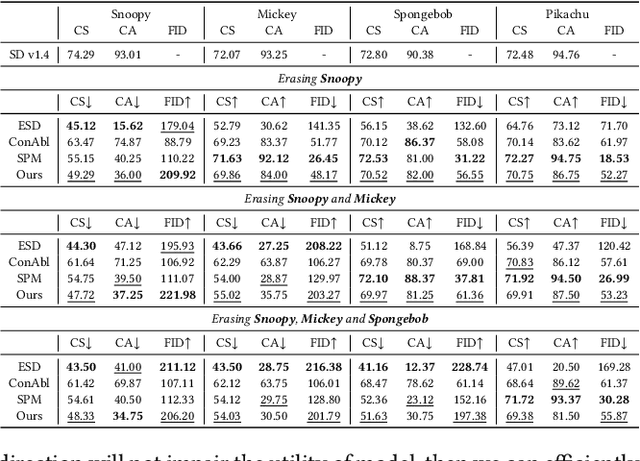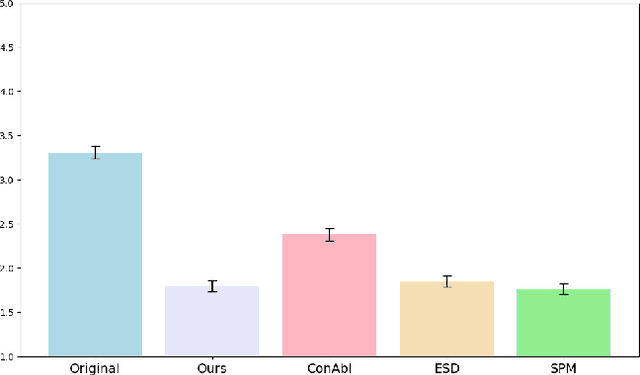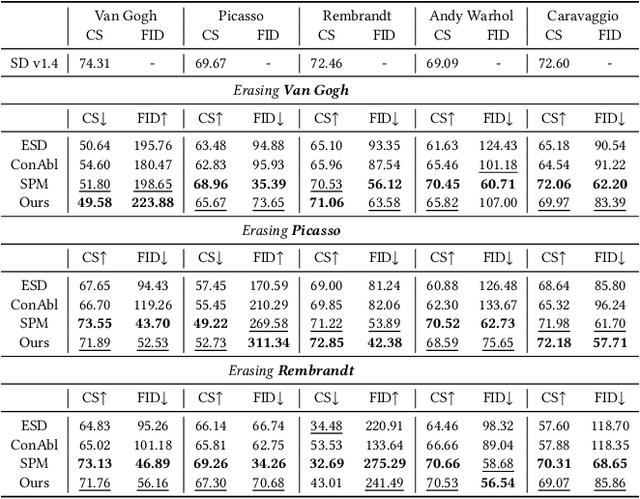Unlearning Concepts in Diffusion Model via Concept Domain Correction and Concept Preserving Gradient
Paper and Code
May 24, 2024



Current text-to-image diffusion models have achieved groundbreaking results in image generation tasks. However, the unavoidable inclusion of sensitive information during pre-training introduces significant risks such as copyright infringement and privacy violations in the generated images. Machine Unlearning (MU) provides a effective way to the sensitive concepts captured by the model, has been shown to be a promising approach to addressing these issues. Nonetheless, existing MU methods for concept erasure encounter two primary bottlenecks: 1) generalization issues, where concept erasure is effective only for the data within the unlearn set, and prompts outside the unlearn set often still result in the generation of sensitive concepts; and 2) utility drop, where erasing target concepts significantly degrades the model's performance. To this end, this paper first proposes a concept domain correction framework for unlearning concepts in diffusion models. By aligning the output domains of sensitive concepts and anchor concepts through adversarial training, we enhance the generalizability of the unlearning results. Secondly, we devise a concept-preserving scheme based on gradient surgery. This approach alleviates the parts of the unlearning gradient that contradict the relearning gradient, ensuring that the process of unlearning minimally disrupts the model's performance. Finally, extensive experiments validate the effectiveness of our model, demonstrating our method's capability to address the challenges of concept unlearning in diffusion models while preserving model utility.
 Add to Chrome
Add to Chrome Add to Firefox
Add to Firefox Add to Edge
Add to Edge